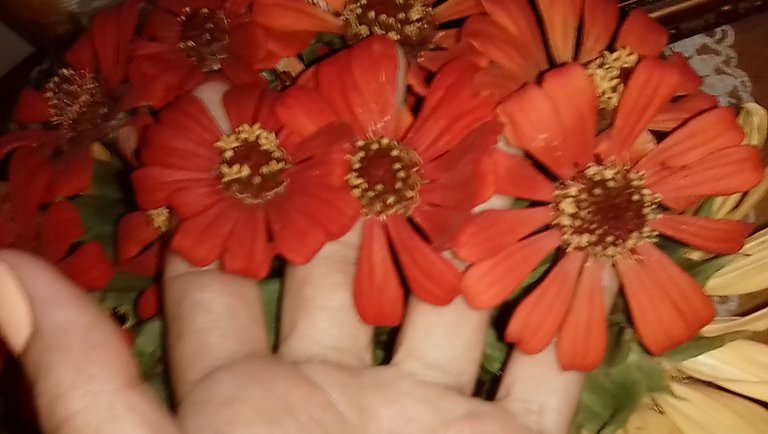
Las mujeres no queremos ser santas

Eso era lo que hacía cuando escuché que dos personas (dos mujeres) venían detrás de mí, en el asiento de atrás, despotricando de alguien. Por lo visto hablaban de la hija de alguien, que apenas tenía 20 años y un hijo:
_La madre cree que es una santa. Santa es la hija mía. Esa sí puedo decir que es una santa y la puedo defender ante cualquiera –expresó una de las mujeres con un tono de burla y drama.
Esa conversación me tuvo dando vueltas, sobre todo por la carga moral que tenía el juicio que hacían aquellas mujeres de otra mujer. Reflexiono y me doy cuenta que cuando ajusticio, yo me purifico. Cuando señalo el pecado en la otra persona, me limpio de él. Doy por sentado que tengo la moral para enjuiciar al otro por sus actos. Es decir: extraigo de mí el pecado, limpio la mancha. Yo ni los míos somos pecadores y por eso puedo hablar del pecado de los otros. Tal vez por eso la mujer dijo que ella sí podía hablar de santos porque su hija era, según ella, su madre, una santa. “Solo los que cocinan, amuelan los cuchillos”, diría mi abuela.

Hay clanes que se adueñan de ciertas banderas y pueden trabajar para perpetuar un culto, y aunque parezca inimaginable, todavía hay mujeres que denigran a otras mujeres solo porque no son tan “puras” como ellas. Las llaman “cualquiera”, porque no son santas. La purificación de una mujer, no es porque haga milagros ni porque sea buena, sino porque su cuerpo se resista al pecado de la carne.
Hay que decir que en la actualidad, los jóvenes tienen “más fluidez” sexual entre ellos, asumen la sexualidad con más naturalidad, como menos traumas (recordemos que detrás de ciertas virtudes se esconden ciertos traumas), con menos prejuicios que las generaciones mayores. Yo no he visto que por señalar el comportamiento de alguien, ganes alas o un carro cero kilómetros. Lo que sí he visto es que ciertas posiciones pueden convertirse en armas para tu propia garganta: ¿qué tal si, al final, la hija de la señora no resulte tan “santa” como predica su madre? Yo he visto a más de uno caerle la saliva en la cara después de escupir para arriba.




HASTA UNA PRÓXIMA OPORTUNIDAD, AMIGOS
Las imágenes son de mi galería personal y el texto fue traducido con Deepl Translate
[Versión en inglés]
I use public transportation a lot, not only because it's cheaper, but also because, I must confess, I enjoy watching people, passengers, listening to them, creating them and giving them life: nurturing them to turn them into characters in my stories.That's what I was doing when I heard two people (two women) coming behind me, in the back seat, ranting about someone. Apparently they were talking about someone's daughter, who was barely 20 years old and had a son:
_The mother thinks she is a saint. The mother thinks she's a saint. That one I can say is a saint and I can defend her to anyone,” said one of the women with a tone of mockery and drama.
That conversation kept me going around in circles, especially because of the moral burden of the judgment that those women were making of another woman. I reflect and realize that when I judge, I purify myself. When I point out the sin in the other person, I cleanse myself of it. I take it for granted that I have the moral authority to judge the other person for his or her actions. That is to say: I extract from myself the sin, the stain. Neither I nor mine are sinners and therefore I can speak of the sin of others. Perhaps that is why the woman said that she could speak of saints because her daughter was, according to her, her mother, a saint. “They only grind the knives, what they cook.”
It is sad that today, there are still people who judge women, yes, because it is the woman they judge, not the man, by her sex life, by the partners she has had and not by the studies she has done, by her kindness, by the way she treats her neighbor. It is unheard of and unusual that there is an “enlightened caste” that says how women should behave, how many partners and children they should have, what kind of clothes to wear and other such barbarities.
There are clans that take over certain flags and can work to perpetuate a cult, and although it may seem unimaginable, there are still women who denigrate other women just because they are not as “pure” as they are. They call them “anyone”, because they are not saints. The purification of a woman is not because she performs miracles or because she is good, but because her body resists the sin of the flesh.
It must be said that nowadays, young people have more sexual “fluidity” among themselves, they assume sexuality more naturally, with less traumas (let's remember that behind certain virtues hide certain traumas), with less prejudices than older generations. I have not seen that by pointing out someone's behavior, you win wings or a zero kilometers car. What I have seen is that certain positions can become weapons for your own throat: what if, in the end, the lady's daughter does not turn out to be as “saintly” as her mother preaches? I have seen more than one person spit in her face after spitting up.
In short, I think it is crucial to see human beings as human beings, flesh and blood, with defects, with the great possibility of making mistakes, falling, sinning; that is to say, to retake the humanist look. People are not heroes, warriors, nor are they gods or saints. To believe and say that a woman is a saint, in my opinion, is disempowering, because it places us in the role of being on an altar, like a vase, and being adored only for our purity. I find it more interesting to see us from the power we have, the multiplicity of forces and desires that lie within each of us. Because to be honest, if they are going to put a label on me, then I prefer to be called a witch because they have more power.
I find women saints boring... I hope la pulga is not a saint 😋
Hahahaha. Maybe that mentality is from idle third world people, but I don't understand how, within all the things to appreciate in a person, women are still judged by the number of partners they have had. A hug, my friend and have a nice night